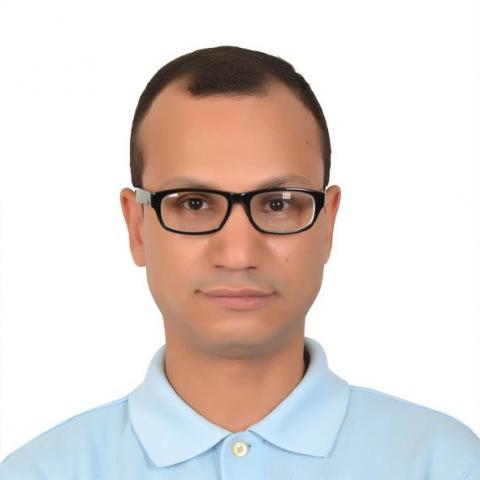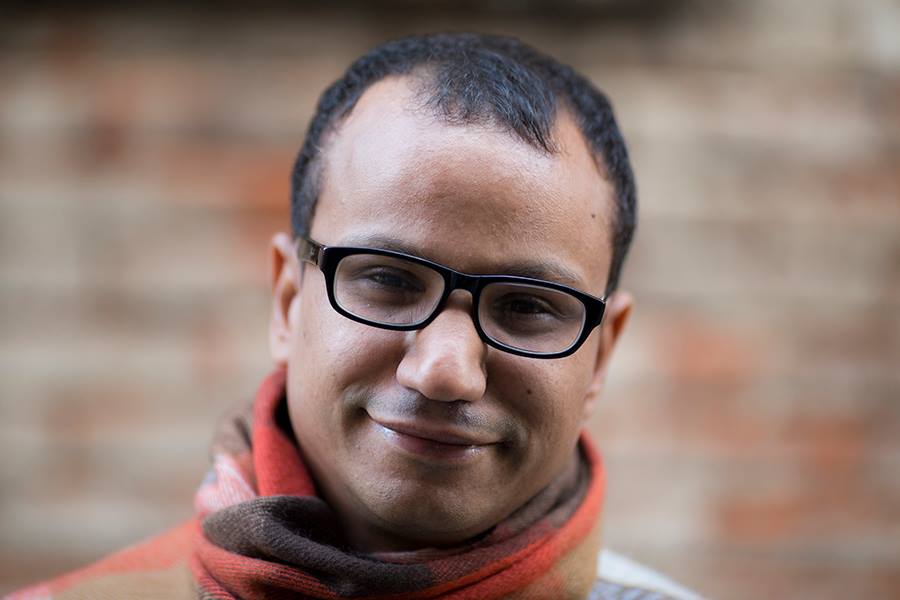Interview with shortlisted author Mohammed Abdel Nabi
06/04/2017

Where were you at the shortlist announcement and what was your reaction?
I was at home, as usual. Of course, I was overjoyed.
What does it mean to you to be shortlisted?
It comes close to a small miracle. It also puts a big responsibility on my shoulders that I hope I can live up to.
The novel is written from Hani Mahfouz’s point of view entirely, and all the male characters are either homosexual or hostile towards homosexuals. Aren’t there heterosexual men who are understanding of homosexuality? For example, your novel was received with support from many male readers and critics.
There are of course heterosexual males who are understanding of homosexuality, in life and in the novel too, such as the psychiatrist Sameeh who was helping Hani Mahfouz get through his ordeal. The novel may not have focused on him for purely artistic reasons, but his perspective – progressive and understanding – is assumed to be expected and known. I was also trying to steer clear of direct oratorical messages as much as possible.
You said in a previous interview that during the process of writing this novel, you backed out on the project more than once. Why?
It wasn’t backing out, the idea started out as a story, but I set it aside for a long time and worked on other projects, then came back to it and gradually developed it. In the meantime, I may have stopped more than once when I got busy with other practical issues.
What are you reading now? Which writers have influenced you as a novelist?
Right now, I am reading, in parallel, two books about motherhood, its secrets, ghosts and myths from the point of view of female Arab writers. The first is Diwan ElOmooma which is a collection of texts and testimonials about writing and motherhood by a number of Egyptian and Arab writers, edited by poet Rana ElTonsi. The second is How to Heal: On Motherhood and its Ghosts, by Egyptian poet Eman Mersal. I think this is still uncharted territory and is in need of many more contributions.
The writers who have influenced me as a novelist are more than I could list. They are Egyptians, Arabs and non-Arabs, from different generations and schools. And they are constantly changing and the degree of their influence over me also changes, so it would be hasty and unfair of me to mention a name or two.

Read an extract from In the Spider's Room below:
The further my writing advances, the bigger this small room grows and the more the walls recede until they disappear completely. The pages of the notebook in front of me is the only place left that exists. I’m evasive. I take memory as far as it can go, to put off the confrontation. I feel as if I’m saying goodbye to my life by shrouding it in lines and words. I haven’t gone close to the open wounds yet. I’m still twisting and turning on paper, just as I walk around letting my body lose its way in the downtown crowds every night.
Two days ago, I went out for my evening roam and I realised I’d forgotten my dark glasses and had gone out with my face uncovered. I’d raised my right hand to adjust the position of the glasses on my nose and I was surprised to find they weren’t there. I felt as if I’d gone out in the street naked with nothing to cover myself. I had gone only a few paces from the door of the building that has the hotel on its top three floors. I looked around quickly, just to be safe, and didn’t see anything suspicious. Even so I found myself shaking – at least my fingers were clearly trembling. I pretended that everything was normal, on my guard for anyone monitoring me, as though a great big eye, open day and night, was watching my slightest movement and maybe my thoughts as well. I feel I’m not alone, and I haven’t recovered yet.
Read this interview in Arabic here
